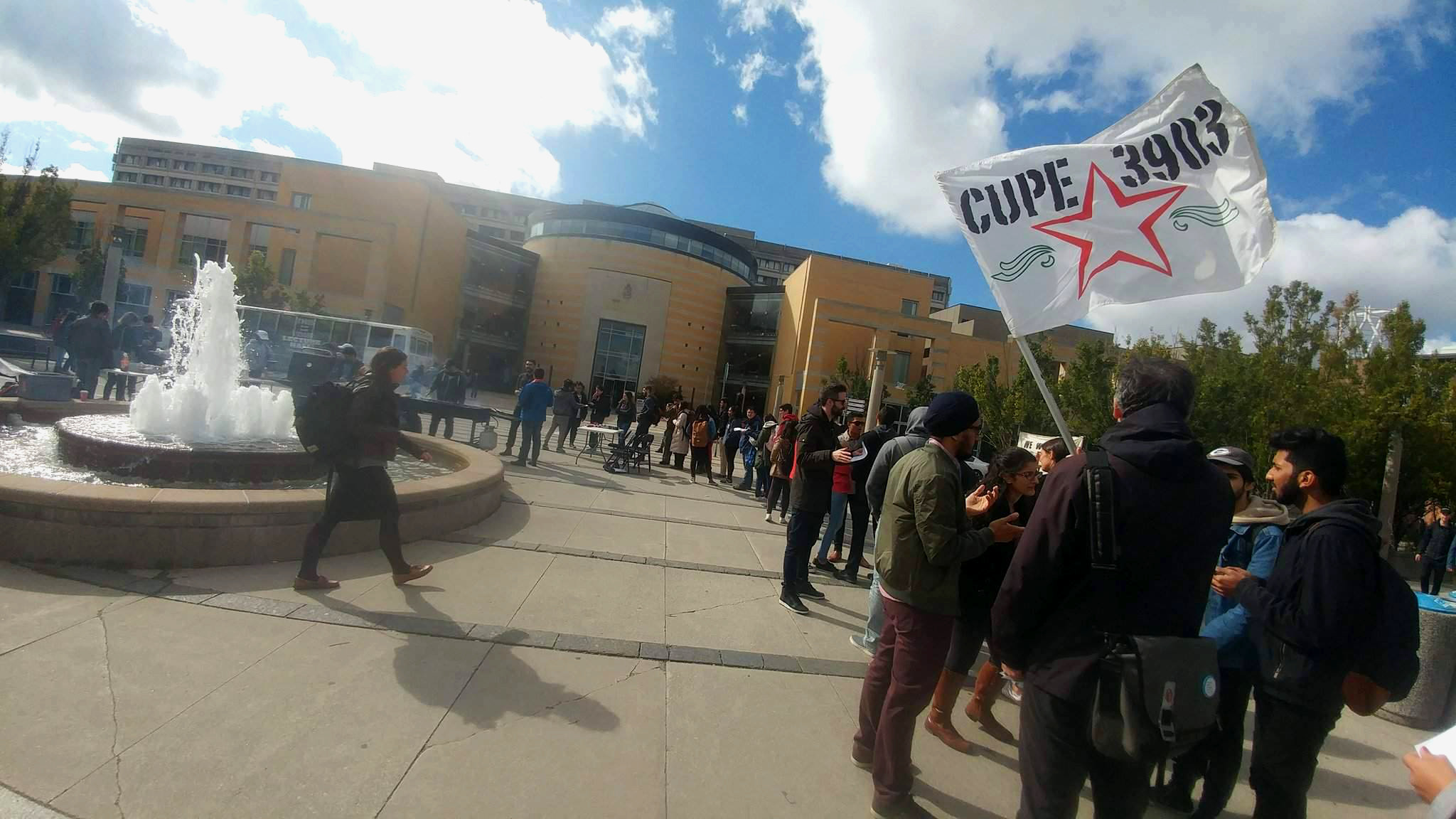York and CUPE 3903 — the trade union representing contract faculty — teaching assistants, graduate assistants, and part-time librarians and archivists at York, have agreed to meet again starting January 22, resuming talks on the renewal of collective agreements put forward in 2018.
Yanni Dagonas, York’s deputy spokesperson, indicates that the university administration remains confident they will be able to push forward the extension of said agreements.
“The university remains focused on achieving extension agreements that will provide certainty and stability to the York community during these extremely challenging times. We remain hopeful that we are able to reach a negotiated collective agreement with each of CUPE 3903 Units 1, 2 and, 3.”
These negotiations, which began last fall, will determine the funding, resources, and benefits allocated to CUPE 3903 members as well as define the overall working relationship between York and the union.
The union went on strike in 2018 under similar circumstances — this resulted in the longest post-secondary labour disruption in Canadian history at 143 days, leading to course cancellations and delayed graduations. The strike also brought attention to the delicate state of employment for contractual academic staff at York, with job uncertainty being widespread due to the shortage of full-time positions relative to the amount of contract faculty employed at York. The university administration failed to address this issue, leading to four strikes within the last 20 years.
Due to the pandemic, bargaining will take place online. In that regard, in May 2020 the university also agreed to provide funding to CUPE 3903 members for COVID-19-related issues, but many issues and proposals remained unaddressed, including concerns about graduate student funding.
Dr. Sabine Dreher, a professor at the international studies department at Glendon College, and a member of CUPE 3903 Unit 2, emphasizes that other units of the union had different priorities that may potentially deter the reaching of a new agreement. She also highlighted the aforementioned diverse circumstances that other members of her unit face.
“To make matters complicated, you need to be aware there are three units that are negotiating and they all have different problems and demands. I am only a member of Unit 2, which is for contract faculty,” she says.
She adds that many contract members experience unique difficulties. “Most Unit 2 members don’t earn enough money to survive in Toronto and need to find teaching gigs at other universities.”
According to Dr. Dreher, the interests of individuals like herself are just one piece of what the union as a whole is seeking. “Individual members may not be able to reflect or understand the membership as a whole, even their diverse issues and problems.”
Dr. Dreher particularly underlined the need to closely examine the conversion process of contract faculty to full-time tenured positions within the university.
“From my own perspective, the conversion program or any kind of job security program that would provide stability for me is on the top of my wish list, so I personally was glad to hear that the employer had offered to create a commission about this very issue to study it deeply,” she says. “But, I am unclear with regard to the current state of negotiations and whether this is still on the table.”
The last bargaining meeting of 2020, which took place on December 22, ended with no clear consensus on how to proceed with the negotiations. York and CUPE 3903 will meet three times this month beginning on January 22, during which they will continue discussing their collective agreements.
Read more on this from our March 2, 2021 update, March 22, 2021 update, and April 6, 2021 update.




